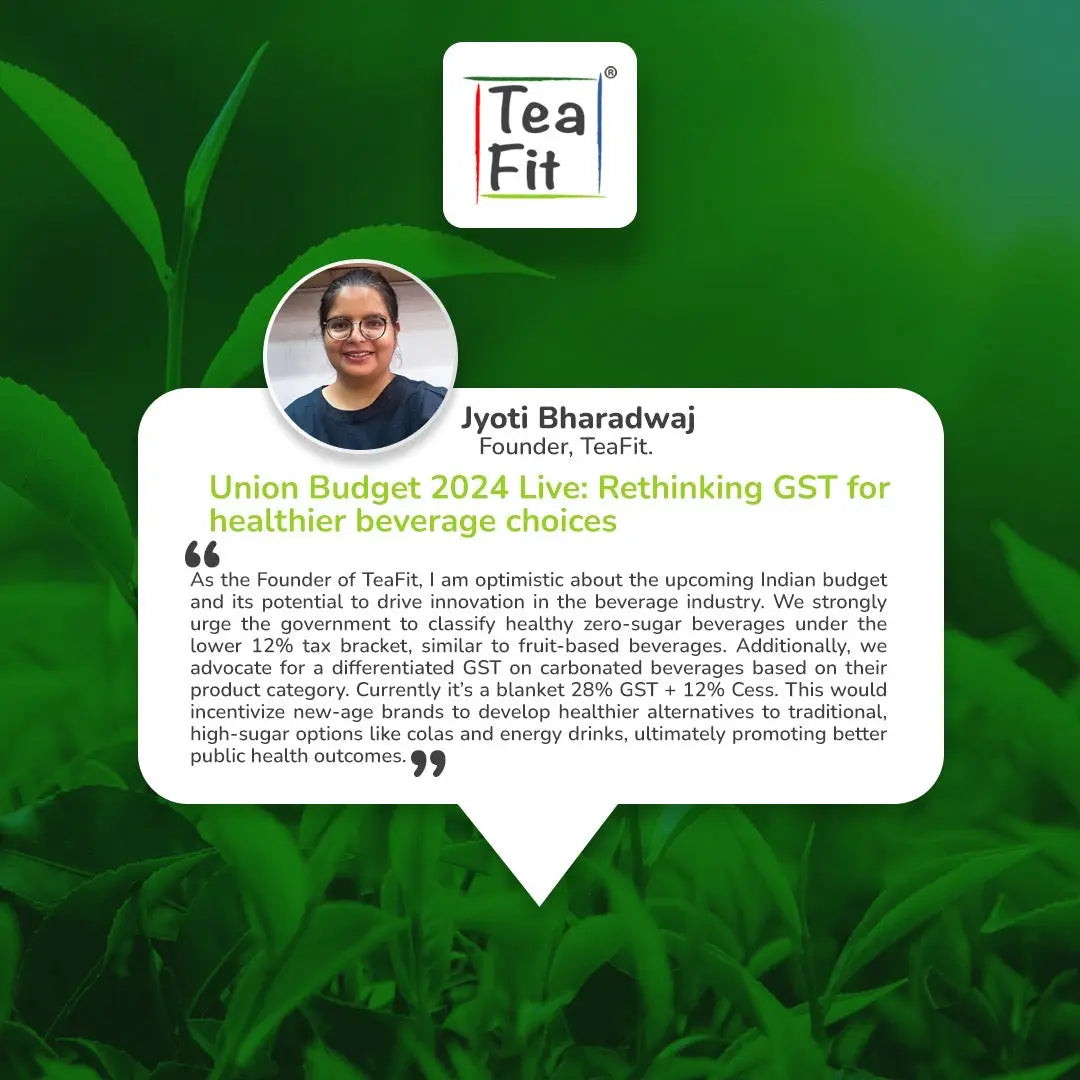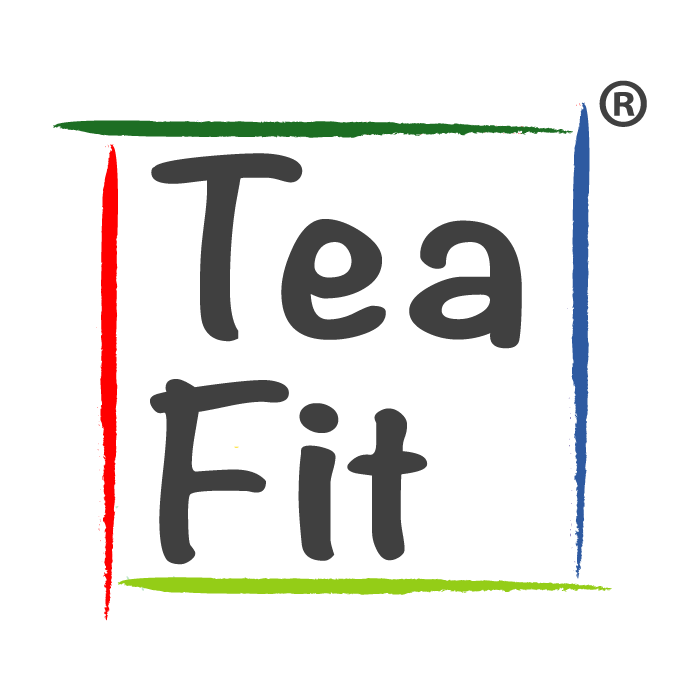Thanks to my work with TeaFit and to you the community - I now have a voice in the industry. I decided to use it and share expectations (more like suggestions) from Ms. Seetharaman's third budget due tomorrow.
There are many expectations from the FMCG sector for the government to drive demand in general and rural demand in particular. But that's an industry wide expectation and far more qualified leaders would be sharing their views on the same.
I personally am optimistic about the upcoming budget and its potential to drive innovation in the beverage industry. We strongly urge the government to classify healthy Zero Sugar beverages under the lower 5% or 12% tax bracket, similar to fruit-based beverages. Currently these product, including TeaFit fall under 18% tax bracket.
Additionally, we advocate for a differentiated GST on carbonated beverages based on their product category. Currently it’s a blanket 28% GST + 12% Cess for all carbonated beverages irrespective of its content. This would incentivise new-age brands to develop healthier alternatives to traditional, high-sugar options like colas and energy drinks, ultimately promoting better public health outcomes. Not all carbonated beverages are sin. We have been unable to look at this space despite being a healthy beverage brand due to the 40% GST. I am certain we aren't the only ones.
Here are some examples from around the world
1. UK
Sugar Tax: Introduced in April 2018
The levy is tiered:
24 pence per liter for drinks with more than 8 grams of sugar per 100 milliliters. (Almost every Indian beverage brand falls in this bracket)
18 pence per liter for drinks with 5-8 grams of sugar per 100 milliliters.
Impact: This has led to many manufacturers reformulating their products to reduce sugar content. For example, Coca-Cola reduced the sugar in its Fanta product to avoid the higher tax bracket.
2. Mexico
Sugar Tax:
In 2014, Mexico introduced a tax of 1 peso per liter on sugary drinks.
Impact: There was an immediate decrease in the purchase of taxed beverages by approximately 6% in the first year, with an increase in water and non-taxed beverages' consumption.
3. South Africa
Sugar Tax:
In 2018, South Africa taxes 2.1 cents per gram of sugar content that exceeds 4 grams per 100 milliliters!
Impact: This measure has driven manufacturers to reduce the sugar content in their beverages. Coca-Cola reduced sugar in its Sprite brand by 37%.
Public Health
Reducing sugar consumption will
1) Improve public health and reduce government spends on the same
2) Encourage manufacturers to reformulate their products
3) Drive consumer awareness and help make better choices.
Thank you to The Economic Times moneycontrol.com CNBC Hindustan Times Financial Times for featuring this in your publication. We do hope that people are listening. 🙏


